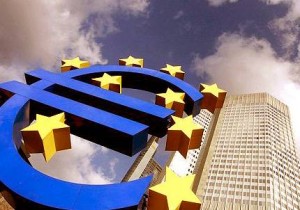Europe: Age of austerity
Apr 28th, 2011 by admin
Articol aparut in numarul din aprilie 2011 al revistei “Tiger Times” a Colegiului Industrial al Fortelor Armate ce face parte din Universitatea de Aparare a SUA.
The financial and economic crisis has changed the economic landscape at the global and European level. Its impact on business and macroeconomic environments pose a key challenge for European companies, markets, institutions and governmental authorities. The Euro zone is facing its deepest crisis to date. The credit crunch and economic downturn have exacerbated unsustainable public debt, and brought about uncertain prospects of growth and a huge rise in unemployment to 23 million in Europe as a whole. The crisis showed up the fragility of a monetary union without close fiscal and economic coordination. Now Europe is facing both a crisis of cooperation between its member states and a crisis of member states’ refinancing. Today, with the bankruptcy of Greece and Ireland, not fully avoided by Portugal (which already asked for a bailout) Spain and Italy, Europe is crumbling. This is the dawn of the “age of austerity” and nothing will ever be the same again.
The coming year will see the very rules of European politics thrown out the window and rewritten altogether. The European leaders and the European Commission took measures to restore the confidence in financial markets. The most commonly used word was: austerity. Austerity measures have been firmly entrenched in Europe in 2010, not only in the political debate but also in the practical world of policy. Across the continent people were starting to be confronted with what the IMF, foreign investors and conservative politicians informed us was the “pain” of public expenditure cutbacks. What was the result? Unemployment and inflation are now soaring, while social benefits are being cut across the board and taxes are being raised. Pension funds are being restructured, tuition fees doubled or tripled, and culture, education, military and healthcare budgets slashed all in the name of restoring market confidence. In this economic climate, it’s no surprise that violent anti-austerity protests have broken out from Athens to London.
It’s becoming increasingly clear that we need a radically new political economic paradigm that can deal with the challenges of the 21st century. A model that is dynamic, flexible and sustainable. At the heart of this new paradigm must be the recognition of the fact that social and technological innovations are the key to economic prosperity in the 21st century. Needless to say, however, technological change is necessary but not sufficient. In the years to come, Europe will also need to address some of the fundamental socio-economic and fiscal imbalances that lie at the heart of the current crisis, as well as developing new institutional frameworks to govern financial markets.
What kind of Europe do we want for the future? This question lies at the heart of disagreements between European social democrats and the right- wing. This means that we have to reassess the power of the political game.
Today, the European Union and the euro area are at a crossroads. The EU faces a double challenge of finding a fair way out of the crisis and strengthening its institutions to boost economic governance. In the end the consequences of the crisis for the European people, economy and environment will remain with us for decades to come.


